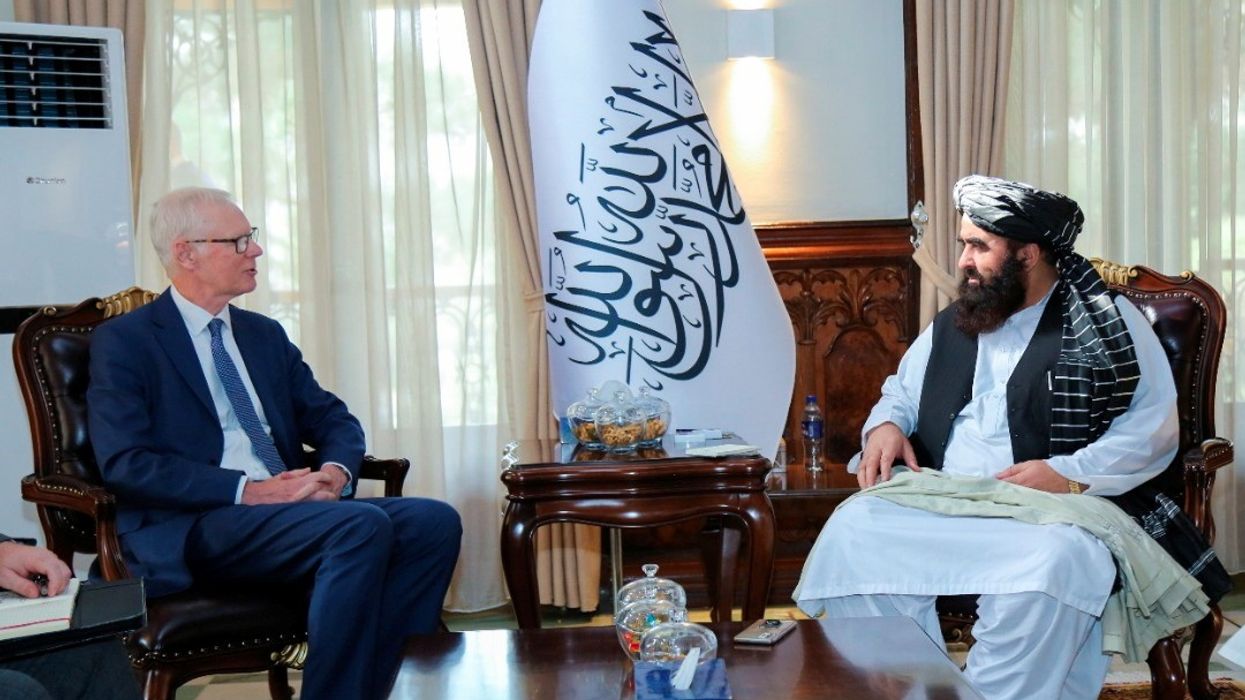A TOP British envoy held talks with senior Taliban officials in Kabul on Tuesday (5) - the first since foreign forces evacuated from Afghanistan - as the country's new masters seek a path out of international isolation.
Taliban officials tweeted pictures of the first meeting between Simon Gass, Britain's special representative for Afghanistan, and deputy prime ministers Abdul Ghani Baradar and Abdul Salam Hanafi.
Both two sides discussed how Britain can help Afghanistan battle terrorism and a deepening humanitarian crisis - and provide safe passage for those who want to leave the country, a UK government spokesperson said.
“They also raised the treatment of minorities and the rights of women and girls,” the spokesperson added, saying Gass was joined by Martin Longden, charge d'affaires at the now evacuated UK mission to Afghanistan.
Abdul Qahar Balkhi, the Taliban's foreign ministry spokesman, said the meeting "focused on detailed discussions about reviving diplomatic relations between both countries".
Western governments have warned that the Taliban must form an "inclusive" government and respect women's rights if they are to be formally recognised.
Neighbouring Pakistan however has been pushing for the international community to engage with the new rulers and help stabilise a country threatened by famine.
Afghanistan’s new rulers have been courting hesitant foreign powers in a bid to restart cash flows to the country, where civil servants and healthcare workers have gone months without salaries.
However, the Taliban, notorious for their brutal and oppressive rule from 1996 to 2001, have faced a backlash after effectively excluding women and girls from education and work across the country.
On Tuesday (5) girls returned to some secondary schools in a northern province, Taliban officials and teachers said, despite them remaining barred from classrooms in much of the country.
A video posted by the group's spokesman Suhail Shaheen showed dozens of schoolgirls in black, some wearing white head scarves and others with black face veils, sat in chairs waving Taliban flags.
But education ministry official Mohammad Abid said there had been no policy change from the interim central government, telling AFP on Tuesday: "High schools still remain closed for girls."
The Taliban, which have permitted girls to attend primary school, have said girls will return to secondary schools once their security and strict gender segregation under sharia law can be ensured.
The Taliban also announced at a stage-managed rally that some women civil servants have been called back to work, in signs the Islamists may be trying to soften their public image after 50 days in power.
Interior ministry spokesman Qari Sayed Khosti said all staff of the passport department "including female employees" were asked to return to their offices.
(AFP)




